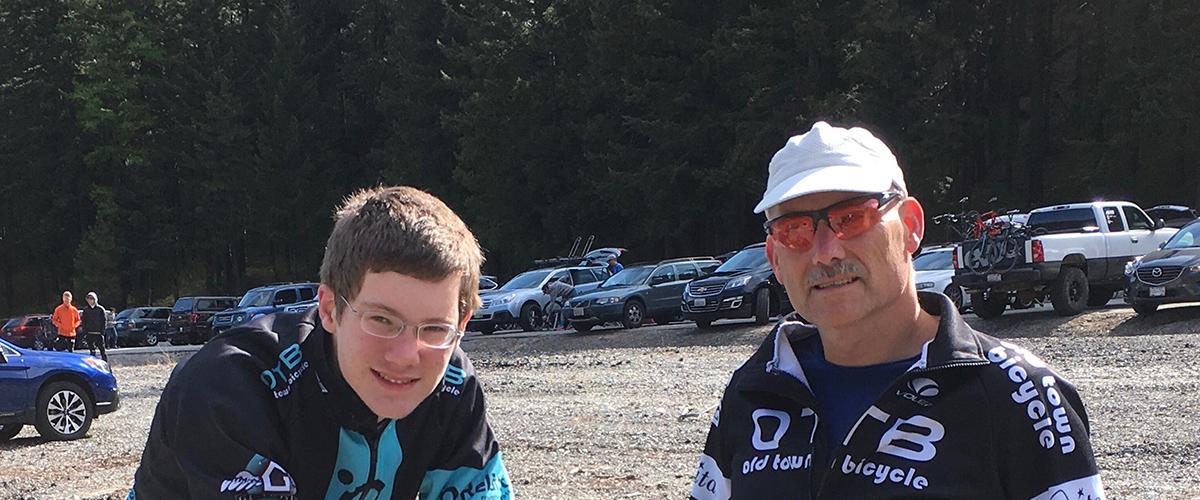
Shannon Lord, MDF's founding chairman, passed away on June 4, 2013. Shannon had a mild form of DM1 and her two grown sons have childhood-onset DM. She was a compelling speaker, advocate, and fundraiser for the myotonic dystrophy cause, and was responsible for the participation of American family members at the International Myotonic Dystrophy Consortium in 2005 from which MDF evolved. Below is a perspective on coming to terms with a DM diagnosis that Shannon shared with MDF several years ago. It encapsulates the honesty, drive and passion Shannon brought to her advocacy work in myotonic dystrophy.
Empowerment: Shannon Lord's Perspective 20 Years after Diagnosis
After learning of your diagnosis of myotonic dystrophy, you probably can't quite believe it's true. A sense of denial might overcome you for a while, and slowly, ever slowly, the reality starts sinking in. You may become angry and blame others. Then you try to bargain: if only...then maybe. Finally, sadness and depression consume you and you feel frustrated and hopeless. If you allow this process to progress, eventually it is possible to arrive at a place of acceptance. These are the steps of grieving often described in the field of psychology.
It is important to grieve, to go through this natural process - through being the only preposition with integrity. If you try to skirt by, around, over or under it, you will continue to feel sadness and grief as much as you try to quell your feelings. Support groups or counseling can help you navigate through this process. A very important step is learning to ask for help.
Over time you might come to realize that you are not the disease. You, the person with DM or a family member of someone with the disorder, are so much more than that. It is important to learn to accept this inherited disease - over which you had no control - and consciously make choices to do things that make you feel good, that give you joy: Garden. Paint. Play your favorite CD. Go to a good movie. Run. Ride your bike. Eat nutritious meals. Feed the birds. Maintain a sense of humor if at all possible.
It is also important to tell your story to those who will listen, whether family and friends, therapist or support group. Over time, if you tell your story enough times to those who listen, you will begin to realize that the sadness and loss start to diminish. At some point you might even come to realize that you can assume some control over your attitude about what has befallen you.
It is important to assume responsibility for taking the best care of yourself.
- Learn as much as you can about DM and teach your family.
- Write down questions for your doctors and take them with you to your appointments.
- Share the "Information for Medical Professionals" section of the MDF Toolkit with your providers-- many of them will not know as much as you.
- Assume responsibility for guiding the treatment process for yourself or family member. Your doctor might never have treated a patient with this disorder.
- Acknowledge your talents and run with them!
Some DM families, after coming to grips with their diagnosis and needing to do something, have derived tremendous pleasure -and success- in working to raise money to help researchers find a treatment or cure for their family disease. At a time when government funding has been cut back tremendously, these families are thinking of creative ways to continue to advance research with contributions from the private sector. While knowing they are unable to cure themselves or their loved ones, they can control these fundraising efforts to help expedite the next best thing: scientific research by the experts. And the organizers of these events feel great in the process! Some of us find that our greatest rewards often come through giving -- our time, our talents, and our resources.
One individual decided to ride his bicycle to and from work every day - 32 miles round trip - for up to 5,000 miles in his 40th year, and sought pledges from family and friends of $20 per mile, raising over $100,000 in the process. A stunning success! Another person organized a bake sale at his office and asked colleagues to contribute baked goods. With the sale of cookies and cakes, and a few extra donations thrown in, he raised over $700. These people are putting their creativity to work, achieving great success, and reaping totally unexpected personal rewards from the satisfaction and support they receive. In the process they are helping move research closer to a cure.
Even after you have grown accustomed to the idea of having DM and are feeling stronger, you will find yourself riding the wave of sadness from time to time. It is natural to feel that way, so don't try to deny those feelings; allow them, and know that soon the wave will reach shore again and you'll be back on solid ground. As time marches on, the period between the waves will grow farther and farther apart.

